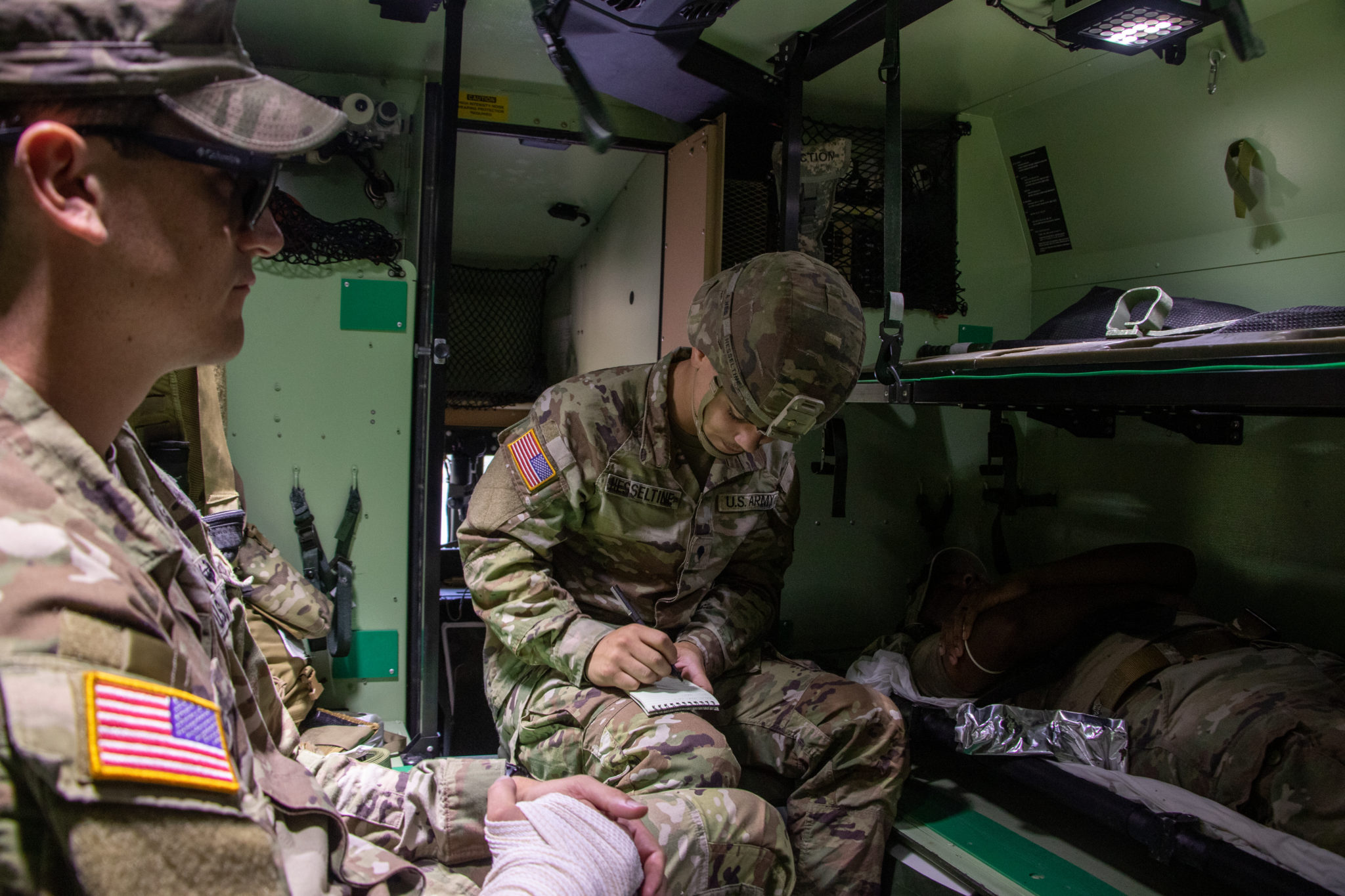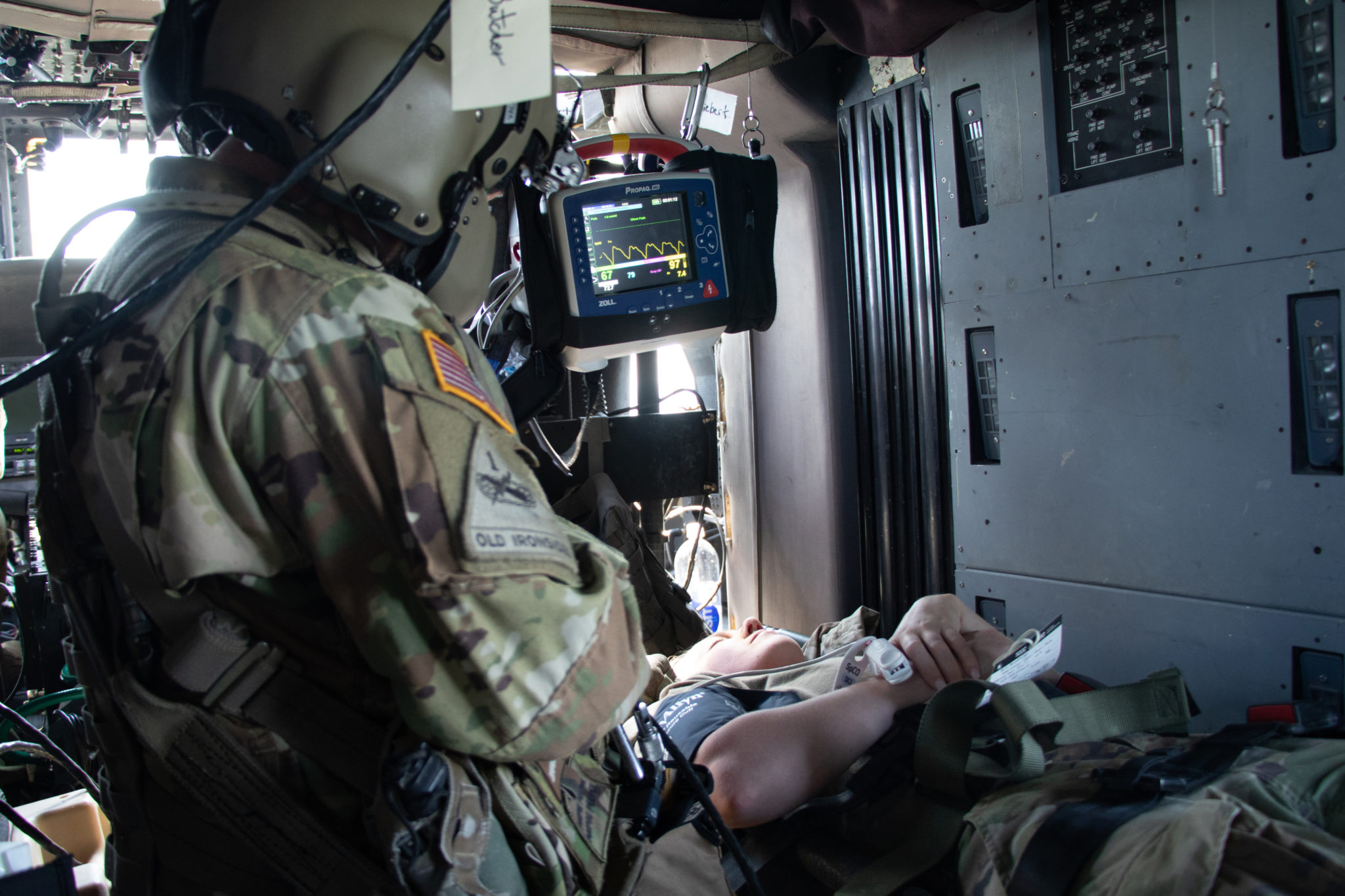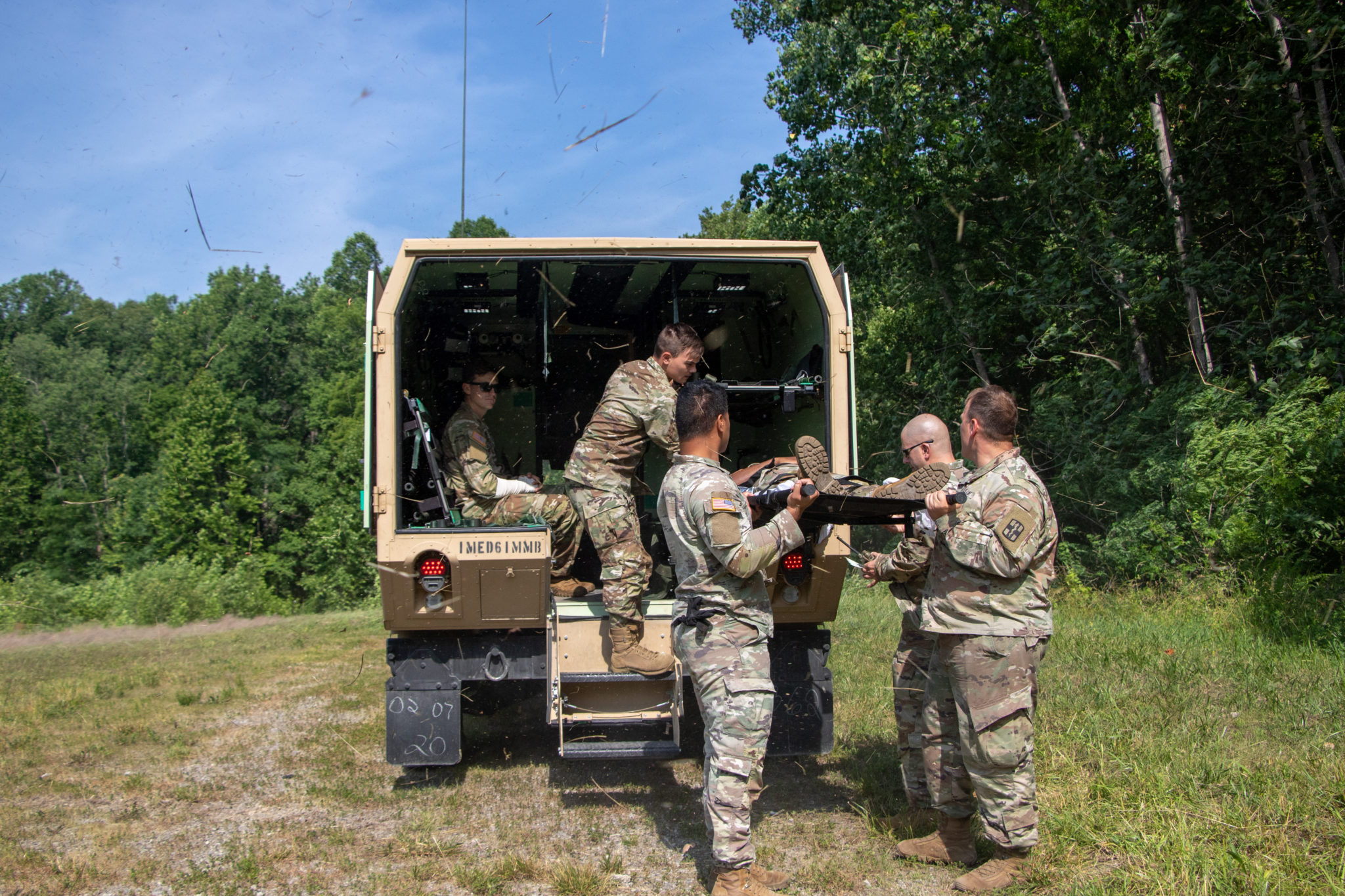FORT KNOX, Ky. – Cadet Summer Training at Fort Knox is home to one of the largest training events in the U.S. Army. Approximately 10,000 Cadets attend either Advanced or Basic Camp every summer, and ensuring their safety is a top priority. Task Force Med is one of the key elements in providing a safe training environment.
Task Force Med is a collaborative group of medical professionals selected from the 61st Multifunctional Medical Battalion, 1st Medical Brigade, Fort Hood, Texas, who provide support towards the health and welfare of the Cadets and Cadre.

“Cadet Summer Training provides the best opportunity for us as a multifunctional medical battalion to train to a level of proficiency of what the Army is expecting us to do,” said Task Force Med Commander, Lt. Col. Tiffany Bilderback.
The Task Force Med personnel conduct exercises throughout the summer to ensure they are medically compliant with the U.S. Army standard. During these exercises, Task Force Med oversees real-life scenarios and treats them with precision and urgency.
“When we got here, we did a number of rehearsals from the taskforce level all the way to CST level for the casualty evacuation,” said Task Force Med Executive Officer, Maj. Ryan Moravec. “That was kind of certifying the whole response enterprise.”
To validate their alertness, Task Force Med partners with other CST units and conducts exercises within each training area to perfect their role in the casualty evacuation plan.
Task Force Med focuses on all health-related issues, whether it is a major or minor issue.

“Our job is to come here and make sure that they [Cadets] are fit and able to make it through their training, and eventually become officers,” said Spc. Kevin Roberts, a health care specialist (68W), known as medic, from Task Force Med. “If they get injured or have some kind of health concerns, we’ll help them out in any way we can and get them right back out.”
There are two main components to Task Force Med. These are known as Role 1 and Role 2. Cadets in need of urgent care report to one of these two sites: Role 1 for immediate care and Role 2 for escalated situations.
“Role 1 is meant to treat immediate life threats and provide first aid. The whole purpose isn’t to keep individuals inside for too long,” Roberts said. “Role 2 is basically the same thing except there’s labs, x-rays, dental, behavioral health, and just some more extra stuff.”
Once cleared by a medic, Cadets are either released back to training or transported by air to a medical facility that will cater to their required treatment.
Along with Role 1 and Role 2, Task Force Med also offers services in other ways.
“We also do SRP [Soldier Readiness Program],” Moravec said. “They [Cadets] get their physicals, their vision and hearing tests, bloodwork, and it’s just a comprehensive physical that they get to validate their medical readiness.”

Not only is it important to make sure Cadets are physically healthy, but it is also equally vital that Task Force Med provides support to the mental well-being of the Cadets.
“Some people just need to talk to somebody,” Moravec said. “A lot of this stuff is just being away from home, maybe for the first time adjusting to the Army.”
Spc. Dustin Homsombath who is also a medic and says he has been happy to serve with Task Force Med Role 2.
“It’s been a lot of work, but I feel like it is satisfying work,” said Homsombath. “We’re always here to treat people.”
Without Task Force Med’s support, safety would always be at risk. The Task Force Med personnel are readily available during their assigned events and make certain that Cadets will be treated rapidly and accordingly.




